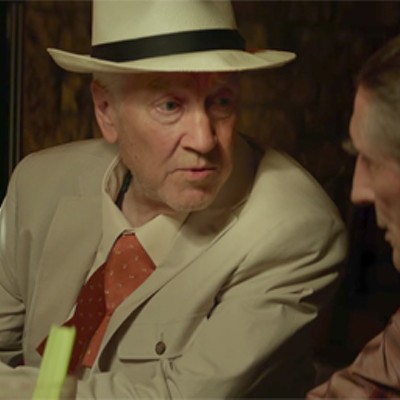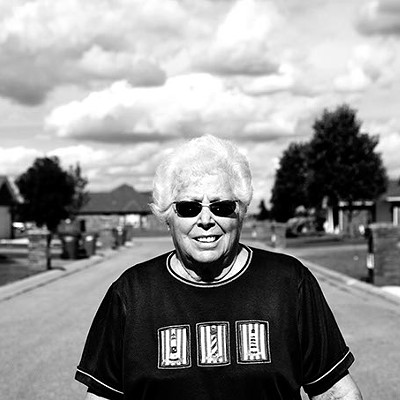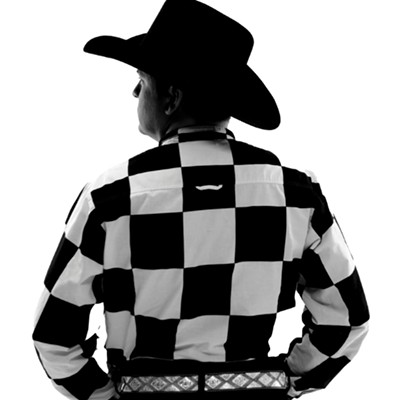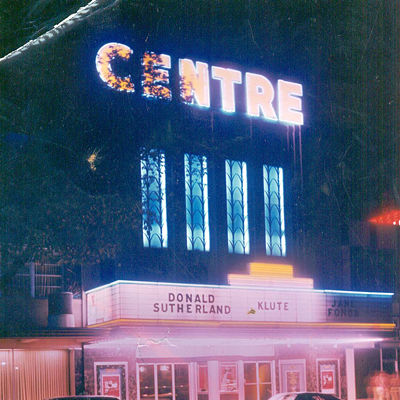This fiercely original film
is as unpredictable as it is dark.
Its opening sequence breaks the fourth wall — with a tire iron, of course, likely borrowed from a TruValue managed by David Lynch — as a car pulls up, and out of its trunk emerges Lt. Chad (a fully invested Stephen Spinella, "Milk"), who delivers a "no reason" monologue straight to the camera.
Despite the scene’s WTF nature, it's not for nothing. Because then begins our story of Robert, a tire that "wakes up," digs himself out of the dirt, and begins roaming the desert, blowing up anything that gets in his way ... with his mind. Just imagine the "Scanners" head-plosion power, but possessed by a vibrating tire.
Why? How? Huh? Don't ask; Lt. Chad already answered you: no reason.
As Robert continues his killing spree, Lt. Chad investigates and pursues. Watching all this unfold nearby via binoculars is a group of moviegoers within this movie. Full of differing, bickering personalities, they function as a Greek chorus ... and unwitting participants in the whole scheme of things. Trust me: That'll make sense once you see it, or at least "sense" within the film’s context. (And the one in the wheelchair is '80s VHS legend Wings Hauser of "Vice Squad.")
Granted, a "homicidal tire" sounds like a really lame Troma cheapie, not the smart art film that "Rubber" is. And granted, "art film" might dissuade some, but know this is a highly accessible one, provided you don't require everything tied in a neat little bow. It never sticks its nose in the air or puts on airs.
In "Rubber," writer/director Quentin Dupieux — who's interviewed among the extras by a blow-up doll — runs over all the rules and delivers one of the most creative pieces of cinema I've seen in years. Yes, it's unusual, but it's anything but unwatchable. As it plants a smile on your face and tickles laughs out of your belly, it'll leave skid marks on your mind. —Rod Lott


![Husband-and-wife duo Maya Deren and Alexander Hammid shot the experimental short Meshes of the Afternoon in 1943. The 14-minute flick is one of three films to screen at [Artspace] at Untitled’s first 40 Minutes or Less event. | Photo provided](https://media2.okgazette.com/okgazette/imager//u/r-bigsquare/2992867/42412.jpg?cb=1680878949)








